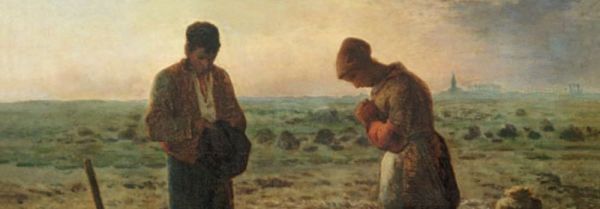Spark of beauty and humanism, or no future
(Jn 8:12-20)
In all religions the term Light is used as a metaphor for the forces of good.
On the lips of Jesus [present in his intimates] the same word stands for a fulfilment of humanity (even of the religious institution) according to the divine plan, recognisable in his own Person.
The distinction between light and darkness in Christ is somehow not comparable to the more conventional dualist binomial - about good and evil. The Creator's activity is multifaceted.
The evangelical term therefore does not designate any static fixed judgement on what is usually assessed as 'torch' or 'shadow', 'correct' or 'wrong' and so on.
There is room for new perceptions and reworkings. Nor are we always called upon to fight against everything else, and the passions.
Classical moral, pious or general religious evaluations must be overcome, because they remain on the surface and do not grasp the core of being and becoming humanising.
Not infrequently, the most valuable things arise precisely from what disturbs standardised thinking.
The same mind that believes it is only in the light is a one-sided, partial, sick mind; bound to an idea, therefore poor.
God knows that it is the incompletenesses that launch the Exodus, it can be the insecurities that keep us from crashing into the patterns... that make us lose who we are.
In fact, the energies that invest created reality have an entirely positive potential root.
Sunsets prepare other paths, ambivalences give the 'la' to impossible recoveries and growths.
"Light" was in Judaism the term that designated the righteous path of humanity according to the Law, without eccentricity or decline.
But with Jesus, it is no longer the Torah that acts as a guide, but life itself [Jn 1:4: "Life was the Light of men"] that is characterised by its varying complexity.
Thus, even the "world" - that is, (in Jn) first and foremost the complex of the institution (so pious and devout) now installed and corrupted: it must return to a more wise Guide, one that illuminates real existence.
The appeal that Scripture addresses to us is very practical and concrete.
But in contexts with a strong structure of mediation between God and man, spirituality often tends towards the legalism of customary fulfilments.
Jesus is not for grand parades, nor for solutions that cloak people's lives in mysticism, escapism, rituals or abstinence.
All of this was perhaps also the fabric of much of medieval spirituality - and the assiduous, ritualistic, beghine spirituality of days gone by.
But in the Bible, God's servants do not have haloes. They are women and men normally inserted in society, people who know the problems of everyday life: work, family, bringing up children....
The professionals of the sacred, on the other hand, try to put a pretty dress on very ungodly things - sometimes cunning minds and perverse hearts. Cultivated behind the magnificent respectability of screens and incense.
To do this, Jesus understands that he must drive out both merchants and customers (Jn 2:13-25) and supplant the fatuous glow of the great sanctuary.
During the Feast of Tabernacles, huge street lamps were lit in the courtyards of the Temple in Jerusalem.
One of the main rituals consisted in staging an admirable night procession with lit fairies - and in making the great lamps shine (they rose above the walls and illuminated the whole of Jerusalem).
It was the appropriate context to proclaim the very Person of Christ as the authentic sacred and humanising Word, the place of encounter with God and the torch of life. There was nothing external and rhetorical about it.
But in that "holy world" marked by the intertwining of epic, religion, power and interest, the Master stands out - with contrary evidence - precisely in the place of the Treasury (the real centre of gravity of the Temple, v.20) as the true and only Extreme Point that pierces the darkness.
The Lord invites us to make our own his own sharply missionary path: from the shrine of stone to the heart of flesh, as free as that of the Father.
Clear call and intimate question that never goes out: we feel it burning alive without being consumed.
There is no need to fear: the Envoy is not alone. He does not testify to himself, nor to his own foibles or utopian derangements: his Calling by Name becomes divine Presence - Origin, Path, authentic "Return".
Do we look like pilgrims and exiles who do not know how to be in "the world"? But each of us is (in Faith) like Him-and-the-Father: overwhelming majority.
By Faith, in the authentic Light: Dawn, Support, Friendship and unequivocal, invincible leap, which rips through the haze.
It bursts from the core, assuming the same shadows and being reborn; bringing our dark sides alongside the roots.
Intimate place and time (outside of all ages) from which the outgoing Church springs forth: here it is from the jewels and sacristies, to the peripheries Spark of beauty and humanism, or without a future
And from the sacred society of the outside, to the hidden Pearl that genuinely connects the present with the 'timelessness' of the Free - even if here and there it undermines so much theology with its preceptistic, greedy and cunning meaning, neither plural nor transparent.
In the end, it is all simple: the full wellbeing and integrity of man is more important than the one-sided 'good' of doctrine and institution - which advocates it without even believing in it.
To internalise and live the message:
In what situations do I consider myself a "Witness"?
What is the torch in my steps? Who is my Present Light?












